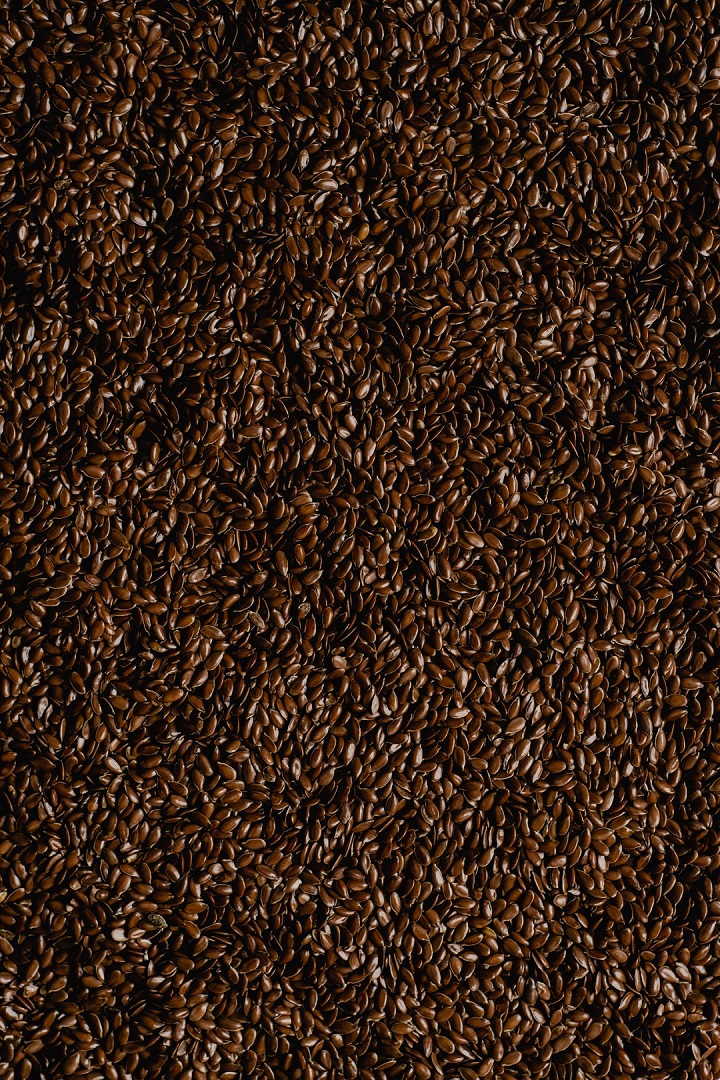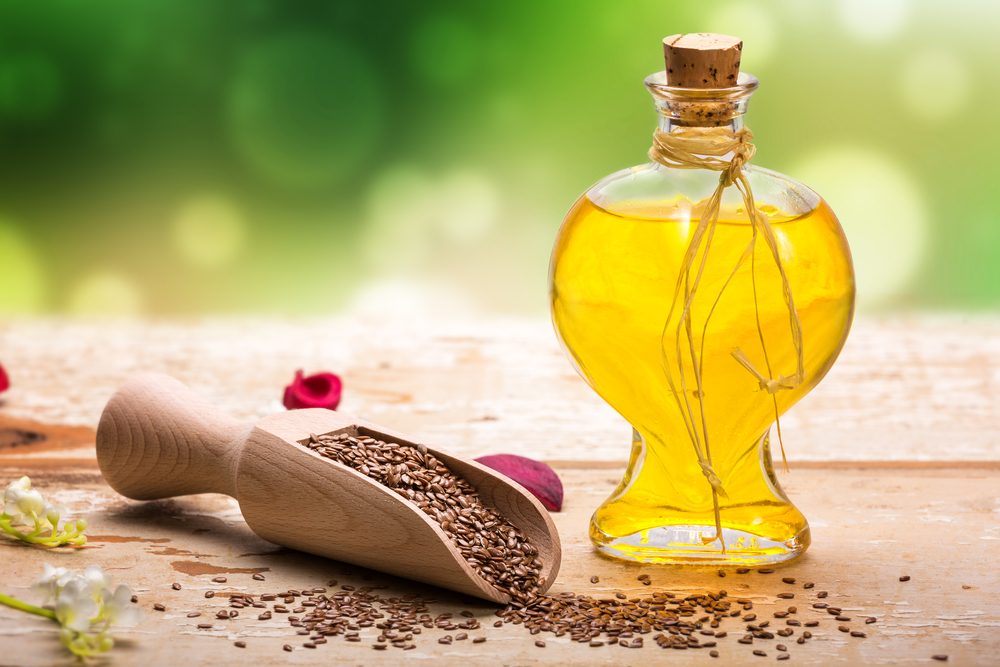
|
Contents |
Linseed (Linum usitatissimum), also known as flaxseed, is one of the best sources of omega 3 essential fatty acids, the good fats that have heart-healthy effects. It has a lot of health benefits, and best of all, these benefits are applicable to everyone. Read this article to learn more.
Want Trusted Practitioner Referrals For Your Health Condition Now?
Click the button below to get free referrals for the leading practitioners on Natural Therapy pages now. 100% Secure & Easy. Over 1.2M referrals made so far.
What is Linseed/Flaxseed?
Linseed, or flaxseed, is the richest source of omega-3 essential fatty acids. It contains 50 percent omega-3s which is almost twice as much as what you can get from fish oil. Although everybody can benefit from it, linseed is perfect for vegetarian and vegan diets because it comes from a plant source. Linseed/flaxseed oil is different from other vegetables as it contains linoleic acid and alpha linolenic acid, which are fatty acids needed by the body and obtained through a healthy diet.
Adding flaxseed to your food not only improves its texture and flavour but also supports your dietary requirement. It's also worth mentioning that flaxseed helps regulate cholesterol levels and prevent inflammation, hence the necessity to load up on this essential source of omega-3 fatty acids.
Linseed has been a staple food for centuries because of its numerous health benefits. As early as 800 BC, the Greeks would include flaxseed in their meals and use it as medicine. Flaxseed oil can treat a wide range of physical and mental conditions as well as support optimal health.

Raw linseed oil, which is extracted from flaxseeds (Linum usitatissimum), has several uses, however, we'll discuss it here only as a nutritional supplement. The suitability of raw linseed oil depends on the intended application and the processing method.
-
-
Nutritional supplement: Consuming raw linseed oil for its health benefits is generally not recommended. Although it is a rich source of alpha-linolenic acid (ALA), an essential omega-3 fatty acid, raw linseed oil may contain harmful substances such as cadmium and lead if it's not processed and purified for food-grade use. Additionally, raw linseed oil can go rancid quickly, which can make it unsuitable for consumption.
-
Instead, it's better to choose cold-pressed, food-grade flaxseed oil, which is processed specifically for consumption and has a cleaner, safer profile. It is important to store flaxseed oil in a cool, dark place and use it within a reasonable timeframe to avoid rancidity.
Remember that flaxseed oil is not suitable for high-heat cooking, as it has a low smoke point and can break down, forming harmful compounds. Instead, use flaxseed oil in cold applications, such as salad dressings, or drizzle it over cooked foods to enhance their nutritional value.
Linseed/Flaxseed Health Benefits
Aside from the omega-3 essential fatty acids, the health benefits of linseed are mainly due to the content of lignans and fibre. A research by Lilian Thompson, PhD, a linseed researcher at the University of Toronto, has revealed that linseed helps reduce risks of certain cancers as well as cardiovascular disease and lung disease. It also improves the quality of hair, nails, and skin, aids the regulation of body weight, lowers cholesterol and blood pressure, and prevents arthritis. It also has the following benefits:
- Heart disease – the omega-3 fatty acids helps lower high blood cholesterol and triglycerides. They also decrease the chances of clots in the arteries which can lead to stroke, heart attack, pulmonary embolism, or any occurring peripheral vascular disease. They can also help in lowering high blood pressure.
- Cancers – research reveals that omega-3 fatty acids can help kill human cancer cells in the same culture. An omega-3 fatty acid called alpha-linolenic acid (ALA) inhibits tumor incidence and growth.
- Cardiovascular disease - the omega-3 fatty acids and amino acids help in normalizing the heartbeat, lowering blood pressure, and providing anti-inflammatory effects.
- Arthritis – omega-3 fatty acids have been shown to be helpful in the prevention and treatment of arthritis.
- Asthma – linseed oil helps relieve asthma by decreasing inflammation and improving lung function.
- Diabetes - the lignans help improve blood sugar.
- Premenstrual syndrome (PMS) – omega-3 fatty acids can help relieve or even eliminate PMS symptoms.
- Allergies – omega-3 fatty acids help decrease allergic response.
- Water retention – linseed oil helps the kidneys to remove excess water and sodium.
- Skin conditions – linseed oil helps improve the texture and quality of the skin, and it can also alleviate skin conditions caused by the lack of omega-3 fatty acids.
- Vitality – linseed oil helps increase vitality and energy. It can also improve stamina.
- Feeling calm during stress – omega-3 fatty acids help prevent the production of excess toxic biochemicals under stress.
- The linseed plant yields the fibre where linen is made as well as oil and seeds. It is highly unsaturated and healthy to the heart. The lignans and other components may also have antioxidant properties which helps in reducing the activity of cell-damaging free radicals.
List of Linseed Side Effects
Flaxseed is a nutritious seed packed with omega-3 fatty acids, fiber, and other beneficial nutrients. However, consuming too much flaxseed can lead to various side effects, including digestive problems, allergic reactions, and drug interactions. Here is an outline of the potential side effects:
Digestive problems
A. Bloating and gas
1. High fiber content can cause discomfort
2. Gradually increasing fiber intake may help reduce these effects
B. Constipation or diarrhea
1. Insufficient water intake alongside flaxseed consumption
2. Balancing fiber intake and hydration is essential
C. Intestinal obstruction
1. Whole flaxseeds may not be digested properly
2. Consumption of ground flaxseed is recommended to avoid obstruction
II. Allergic reactions A. Uncommon but possible 1. Symptoms may include hives, itching, or difficulty breathing B. Cross-reactivity 1. Individuals with allergies to other seeds or nuts may be at higher risk C. Anaphylaxis 1. Severe, life-threatening allergic reaction 2. Requires immediate medical attention
III. Drug interactions A. Blood-thinning medications 1. Flaxseed's omega-3 fatty acids may enhance blood-thinning effects 2. Consult a healthcare professional before consuming flaxseed with these medications B. Blood sugar-lowering medications 1. Flaxseed may lower blood sugar levels 2. Consuming flaxseed with these medications may cause additive effects 3. Monitor blood sugar closely and consult a healthcare professional C. Hormonal medications 1. Flaxseed may have estrogen-like effects 2. Interaction with hormone therapy or birth control pills is possible 3. Consult a healthcare professional for guidance
It is essential to consult a healthcare professional before incorporating flaxseed into your diet, especially if you have a pre-existing medical condition or are taking medications. Moderation and proper consumption can help prevent these side effects and allow you to enjoy the numerous health benefits of flaxseed.
How to manage diabetes with flaxseed
A study involving the use of flaxseed in the management of diabetes shows that consuming a tablespoon of ground flaxseed every day for a month can reduce blood sugar levels. The reason is that flaxseed helps regulate insulin, allowing the cells in your body to absorb glucose levels from your blood.
What's more, asking the experimental group in the study to add four tablespoons of ground flaxseed to their meals for three consecutive months saw them achieve a smaller waistline than the control group in that period.
Omega-3 deficiency
Omega-3 fatty acids are vital for the health of the immune system. Lack of which will lower your body's natural defence and make you more prone to illness and infections. Findings from animal and human studies also show that diets low in these good fats can eventually weaken the nervous system and damage the functions of the neurotransmitters such as dopamine, serotonin and histamine, to name a few.
Fish, seafood, nuts, legumes, eggs, yoghurt, flaxseed, green, leafy vegetables and dietary supplements like fish oil and algae, provide the three most important omega-3 fatty acids, namely alpha-linoleic acid (ALA), eicosapentaenoic acid (EPA) and docosahexaenoic acid (DHA). A deficiency in any of these omega-3s has been linked to mental conditions like depression, as well as heart disease, dry skin, rashes, dull hair, fatigue and brittle nails.
Omega-3 deficiency test
The amount of omega-3 fatty acids a person needs depends on their age, sex and health condition. The recommended ALA intake for men is 1.6 grams per day and 1 gram per day for women, while the total amount of EPA and DHA that their body needs can range from 200 to 2,200 milligrams a day.
To find out if your body has enough or is short of omega-3 fatty acids, you have to undergo a blood test. A small amount of blood will be obtained from you through a finger prick to check the levels of good fats in your red blood cells. The result will determine whether or not you are getting enough omega-3s from your current diet.
Some indications that a person may be deficient in omega 3 fatty acids include:
- Dry skin
- Chicken skin, which is characterised by tiny, rough bumps that are often found on the backs of the arms
- Dry or unruly hair
- Dandruff
- Soft, fraying, or brittle nails
- Menstrual cramps
- Premenstrual breast tenderness
Fighting depression with flaxseed
Depression can dampen your enthusiasm for life and hamper your productivity, but not if you can stimulate your serotonin levels with foods that are rich in omega-3 fatty acids. Mixing ground flaxseed with your cereals or sprinkling some on your breakfast muffin will boost your mood and help you start your day right. You can also add a tablespoon of flaxseed oil to a cup of yoghurt, or a glass of fruit smoothie, as it contains soluble fibre that will make you feel much better in no time.

Using Linseed/Flaxseed
Linseed has a pleasant, nutty flavour which can also be sprinkled onto cereals and into yoghurts and smoothies. It can also be consumed in the form of oil or as a supplement in capsules. Grinding or chewing the seeds very well is the best way to reap its benefits, otherwise they will just pass through the body. Also, the seeds or oil should be kept refrigerated and in a dark place. Do not use the oil for sautéing or frying.
Researchers recommend at least 1000mg daily dose of linseed, which can be taken once or up to three times a day.
Pregnant women and breastfeeding mothers should not supplement their diets with large amounts of flax. They should also avoid ground linseed at all costs.
Meet the flax plant
The flax plant has been around since time immemorial and used by the earliest people as a source of food, medicine, clothing, nets and rope. It's about three-foot tall and produces dainty, blue flowers. Nowadays, the seeds of the plant are harvested and consumed to improve heart health and achieve overall wellness, thanks to its high soluble and insoluble fibre content. The first type of fibre helps lower blood sugar and cholesterol levels, while the latter promotes healthy bowel movement to prevent digestive problems.
Linseed/flaxseed oil

In addition to lending a nutty flavour to your favourite dishes and beverages, linseed and flaxseed oil can also be used as a herbal remedy for all sorts of ailments and conditions. As it's a rich source of omega-3 fatty acids, it can help lower your risk of heart disease, diabetes and certain types of cancer. Taking a tablespoon of flaxseed oil, or mixing it into a glass of fruit juice or yoghurt can effectively relieve digestive issues like constipation, diarrhoea and bloating.
Ground flaxseed
Ground flaxseed is just as powerful as its oil counterpart in boosting your health. Whether you're looking for a healthier substitute for your usual baking or soup ingredients or want to add a nutty flavour to your favourite beverage, then these tiny seeds have exactly what you need.
Because it's bursting with essential omega-3 fatty acids, ground flaxseed meal is undeniably the perfect replacement for enriched flour. Unlike the latter, which only increases blood sugar levels and offers zero nutrients, ground flaxseed can help lower cholesterol levels, prevent inflammation, improve the body's metabolism and boost the immune system. All it takes to make it is your convenient coffee grinder, and you're all set to whip up flavourful and healthful dishes.
The recommended daily dose of linseed may vary depending on individual health conditions and the advice of a healthcare professional.
Evidence of Benefits / Side Effects
There have been numerous studies and trials conducted on the benefits and potential side effects of flaxseed consumption. Below is a list of some of these studies:
-
Benefits of flaxseed A. Cardiovascular health
- Rodriguez-Leyva, D., et al. (2013). Potent antihypertensive action of dietary flaxseed in hypertensive patients. Hypertension, 62(6), 1081-1089. B. Cholesterol reduction
- Bloedon, L. T., et al. (2008). Flaxseed and cardiovascular risk factors: results from a double-blind, randomized, controlled clinical trial. Journal of the American College of Nutrition, 27(1), 65-74. C. Diabetes and blood sugar control
- Hutchins, A. M., et al. (2013). Flaxseed consumption influences endogenous hormone concentrations in postmenopausal women. Nutrition & Cancer, 65(1), 115-120. D. Cancer prevention
- Thompson, L. U., et al. (2005). Flaxseed and its lignan and oil components reduce mammary tumor growth at a late stage of carcinogenesis. Carcinogenesis, 26(6), 1223-1231.
2.Side effects and safety
A. Digestive issues
-
- Cunnane, S. C., et al. (1995). Nutritional attributes of traditional flaxseed in healthy young adults. The American Journal of Clinical Nutrition, 61(1), 62-68. B. Allergic reactions
- Lezaun, A., et al. (1998). Anaphylactic reaction to linseed. Allergy, 53(1), 105-106. C. Drug interactions and safety concerns
- Duke, J. A., et al. (2002). CRC handbook of medicinal herbs. Boca Raton: CRC Press.
- Flaxseed, University of Maryland Medical Center, Complementary and Alternative Medicine Guide.
These studies provide a snapshot of the extensive research conducted on flaxseed, its benefits, and potential side effects.
To find out more about flaxseed or get your hands on quality seeds or linseed oil, visit the Natural Therapy Pages' comprehensive listing of authorised sellers and distributors in Australia.
|
Do you have a natural health & wellness business? |









